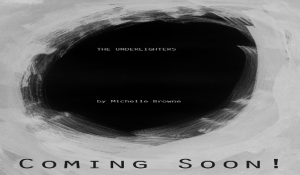Steven Ramirez's Blog: Glass Highway, page 39
September 19, 2013
Where Ideas Come From
 Send to Kindle
Send to KindleBy Bruce Blake
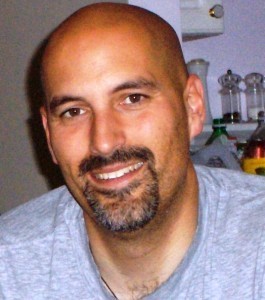 My guest today has been writing since grade school, but it wasn’t until a few years ago that he became a full-time writer. Since then, Bruce Blake’s first short story, “Another Man’s Shoes” was published in the Winter 2008 edition of Cemetery Moon. His first Icarus Fell novel, On Unfaithful Wings, was published in December, 2011. He has plans for more Icarus novels, several stand-alones, and several more books in the Small Gods series.
My guest today has been writing since grade school, but it wasn’t until a few years ago that he became a full-time writer. Since then, Bruce Blake’s first short story, “Another Man’s Shoes” was published in the Winter 2008 edition of Cemetery Moon. His first Icarus Fell novel, On Unfaithful Wings, was published in December, 2011. He has plans for more Icarus novels, several stand-alones, and several more books in the Small Gods series.
One of the most common questions you hear asked of authors is ‘where do your ideas come from?’ If you read a few interviews, you’ll find a wide variety of answers, many of which are pre-formulated to evoke laughter or feelings of inadequacy. Part of the problem with the question, I think, is that so much time has often passed since the author had the idea for the book, he or she likely doesn’t even recall the impetus for the novel.
In the case of my upcoming book, When Shadows Fall, it has only been a couple of months since I began work on the project, so perhaps I can give you a tour of the writer’s mind (please tread carefully … there’s a lot of darkness and it’s a bit messy).
I had finished writing the third book in my Icarus Fell urban fantasy series and began work on another project which, I’m sorry to say, didn’t go so well. It did, however, put me in the mood to write epic fantasy; it had been nearly six months since I completed the Khirro’s Journey trilogy, so it was time.
Step One to Story Idea: Choose Your Genre (or Sub-Genre)
Once I’ve settled on what kind of story I want to write, I try to think of a ways to make it a little bit different from the norm. In the Khirro’s Journey trilogy, I chose a non-traditional protagonist. For this series, I decided to have a prophecy discovered on an ancient scroll. Not so different, you say? How about a little confusion as to who the prophecy refers to, both on the good side and the evil side? I’m interested.
Step Two to Story Idea: Think of a Twist
The third thing that came to me as I pondered the nature of this prophecy was the term ‘Small Gods’, which then became the title for the series. Something about it captured my attention, possibly because when we think about gods, we don’t think of small things, but big, all-powerful beings. This prompted me to sit down and really think about the Small Gods, their role in the story, and other details about my world in general.
Step Three to Story Idea: Build Your World
As the world came together, more characters and story ideas came to light. I started thinking about having two groups known as Small Gods to throw more uncertainty into the prophecy. When I began digging into the religion, which I decided to be Goddess-based, I wondered what it would look like if the devotees of the religion were all women. What would happen to the men? What if a sect of men broke off and were secretly in opposition to the women? The more I thought, the more possibilities screamed at me to get writing.
Step Four to Story Idea: Imagine the Possibilities
The last thing I decided on—which is something I hope most authors do when they set out to write a new book—was to challenge myself. Not only does When Shadows Fall follow four different story lines, but I was determined to make the voice of each different and distinct. But it gets worse … in the second book, which I am currently writing and expecting to be ready for a Dec. 1 release, I am writing one story line from the POV of a blind character—no description based on sight—and another from the POV of a character who doesn’t speak the same language as any of the other characters. Fun stuff.
Step Five to Story Idea: Challenge Yourself
So there you have it … where a story idea comes from, at least in the case of When Shadows Fall. For me, it is rarely in a dream or a flash of light, fully-formed and ready to put pen to paper—it’s work. Not as glamourous as thinking a muse sits on my shoulder and whispers, but it gets the job done.
Goodreads Book Giveaway

When Shadows Fall
by Bruce Blake
Giveaway ends October 04, 2013.
See the giveaway details
at Goodreads.
Bruce Blake
Author of:
On Unfaithful Wings
All Who Wander Are Lost
Blood of the King (Khirro’s Journey Book 1)
Spirit of the King (Khirro’s Journey Book 2)
Heart of the King (Khirro’s Journey Book 3)
Find out more about me at: www.bruceblake.wordpress.com
Subscribe to my newsletter
 Send to KindleLink to this post!
Send to KindleLink to this post!
September 12, 2013
Reviews—They Will Make You Cry
 Send to Kindle
Send to KindlePhoto Courtesy of francisco_osorio via Creative Commons I apologize in advance if this sounds like some kind of rambling rant. I’ve had book reviews on my mind lately, and I need to get this off my chest.
I apologize in advance if this sounds like some kind of rambling rant. I’ve had book reviews on my mind lately, and I need to get this off my chest.
For those of you who’ve been reading this blog for a while, you know that I care a lot about authors and brand. I’ve spoken many times about focusing on becoming a better writer, protecting your brand and not worrying about what people say about your work. For those who are new to this site, here are some links to past posts that cover this territory:
“I Will Get Better”
“For Authors Brand is Everything”
“Chasing the Comet’s Tail”
“Are We There Yet?”
“It’s Not You, It’s Me”
“Seven Steps to Hell or How to Write Badly”
“Forward”
“Trolls Among Us”
“Am I Good Enough?”
“If the Writing Doesn’t Kill You”
“Why Are We All So Scared?”
“Finding the Voice”
“Bad Phrases You Should Kill Now”
“The Gifts We Throw Away”
“Five Things to Improve Your Brand”
“Oh the Joy of Editing Your Novel”
Getting Reviews
I talk to a lot of other independent authors on a regular basis, and I’ve come to learn that many are extremely sensitive when it comes to criticism. So I thought I’d go over a few things, in the hope that they will take comfort and wise up.
Bad reviews—we’ve all gotten them. And it breaks our hearts to read some of the vitriol that people flick at us like so many used boogers. I like to think that most readers, when given the chance, will respond honestly to our work. Not only that, I believe their intent is to help us, because they want to see our work improve.
Pollyanish? Sure, but I don’t like going around thinking the worst of people. I save that for the bad guys in my stories.
Then there are some –trolls—who may have never even read the work in question, but are happy to deliver a scathing screed of hate for all to see, accompanied by the dreaded one star. Honestly, I have no idea what makes these people tick. Maybe they didn’t get enough love when they were little.
The point is, who cares? I’ve gotten some lousy reviews in my time, and also some great ones. Here’s how I look at it. If the good-to-great ones outnumber the few stinkers, then I move on. I cannot make people like me or my writing. All I can do is work my butt off and hope that readers appreciate the result. If the reviews are mostly bad, then I’ve failed as a writer.
And by the way, I’m not one of these people who, when they get a bad review, rally the troops and ask everyone to mark the review as “unhelpful.” That would mean I’m spending too much time on something worthless when I should be writing something of value.
So stop worrying about the bad reviews and focus on the good. I’m begging you. You’ll feel better, trust me.
Giving Reviews
As authors, we are often asked to do reviews for our colleagues. Things get a little sticky, though, when we find the work to be less than stellar, and we are compelled to give the thing two stars. What’s a writer to do? Here’s how I handle it.
If the book rocks, I am happy to write a positive, upbeat review and assign three-to-five stars. Dude, three stars? Yeah, what’s wrong with that? Ever stay at a three-star hotel? I have. Not the end of the world, my friend.
If the review is headed for two stars, I contact the author and let them know. Generally, they are not interested in me posting a bad review, so that’s usually where it ends. Why do I take this approach? Simple. Professional courtesy.
Do you think that doctors and lawyers badmouth other doctors and lawyers? I’m guessing no. But will they recommend a colleague whose work they respect? Yep.
If I don’t like a book I am reading for pleasure, I don’t leave a review. Recently, I purchased a book by an independent author I didn’t know. Thirty pages into the thing I bailed and deleted it from my Kindle. Could I have written a witty diatribe about the book’s lack of any literary merit? Sure, but better to spend the time on my own work.
Reading Reviews
Do I read book reviews? All the time. I don’t care if the more jaded out there believe that the whole thing is one big setup. Generally, I’ve found that if a book is reviewed favorably by a large number of people, it’s a pretty good bet that I will be enjoying a good read.
There are exceptions—sometimes having nothing to do with the quality of the work. Here’s an example. People rave about Dan Brown. He’s sold like a bazillion books worldwide. He’s got great reviews up the yin yang. Recently, I downloaded The Da Vinci Code. Well, I didn’t care for it.
Does that mean the reviews were fake? No. It means I just don’t care for that type of story. Nothing against the author, just a difference in tastes.
As authors, we tend to over-think things. Maybe if we spent more time writing and less worrying about the little things, we’d be a lot better off. Just my opinion. Now, where did I leave that eyelash curler?
Hey, how about this critique? Warning, it’s NSFW:
Related articles
Why Not Think of Book Reviewers as Beta Readers? (69.195.124.64)
Poorly reviewed indie author hires hackers to ‘destroy’ enemies (dailydot.com)
Five star reviews and the lazy author (yamulticulturaljunkie.wordpress.com)

 Send to KindleLink to this post!
Send to KindleLink to this post!
September 5, 2013
Let’s Talk Movies!—‘Evil Dead’ (2013)
 Send to Kindle
Send to Kindle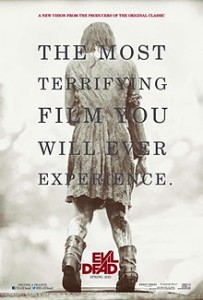
Photo Courtesy of Wikipedia
‘Evil Dead’ (2013)
Directed by Fede Alvarez
Screenplay by Fede Alvarez and Rodo Sayagues
Horror
Stars Jane Levy, Shiloh Fernandez, Jessica Lucas
TriStar
Rated R
Okay, let me start off by saying that I am a huge Sam Raimi fan. I enjoyed the original ‘Evil Dead’ trilogy back in the eighties and early nineties, and I still watch them occasionally. If you’ll recall, the first two were super-low budget, and the third was supposed to take place in England, but was shot in Southern California. Hey, I didn’t know they had tumbleweeds in England!
Nevertheless, they were gory and loads of fun.
I Liked It
So you don’t think I’m about to trash the ‘Evil Dead’ remake, I liked it, okay? It was intense, gruesome and unrelenting in its depiction of twentysomethings trying to survive against an invisible evil that is unleashed when one of those geniuses reads aloud from the Book of the Dead. And, come on, to date it’s grossed over $97M worldwide on a budget of around $17M. What’s not to like?
But in all the horribly graphic maiming, clubbing and loss-of-limb splatter gore, something was missing for me. Here’s a hint: “Gimme some sugar, baby.”
Yep, the humor.
With Horror You Need Funny
The new film is ninety minutes of nonstop Grand Guignol that every lover of horror likes to revel in. But if you’ll recall, with some exceptions, the best horror movies are those which are not only violent but funny.
Look, it’s like this. If you’re going to subject yourself to a root canal without anesthesia, don’t you at least want the oral surgeon to crack a few lame jokes during the blood spray? You know who gets it? Rob Zombie. Check out ‘House of 1000 Corpses’ sometime. Captain Spaulding, anyone? Yeah, humor.
You know who else gets it? Sam Raimi and Bruce Campbell. Which is strange, because those guys show up as producers on this show.
Should I See It?
Of course. But if I were you, I’d put on a comedy afterward. I was actually a little queasy during the end credits. But it’s tight, well written and well acted. As I said, it’s unrelenting. Enjoy the ride, then go back and see the originals. Nobody wields a chain saw like Bruce Campbell.
Related articles
Fede Alvarez Talks Evil Dead Sequel (dreadcentral.com)
Horror You Might Have Missed: Bubba Ho-tep (2002) (monsterzeronj.wordpress.com)
‘Attack of the Helping Hand!’: Early underground short with Sam Raimi (dangerousminds.net)

 Send to KindleLink to this post!
Send to KindleLink to this post!
August 29, 2013
Tell Me When I’m Dead—Now at Amazon!
 Send to Kindle
Send to Kindle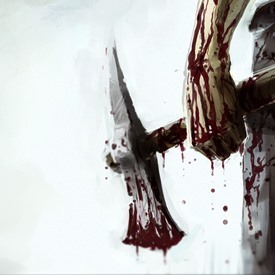 And here you go. The zombie novel I’ve been working on for months is available for purchase exclusively at Amazon. As I mentioned last time, I’ve released a Kindle version and, depending on things go, I’ll consider creating a paperback.
And here you go. The zombie novel I’ve been working on for months is available for purchase exclusively at Amazon. As I mentioned last time, I’ve released a Kindle version and, depending on things go, I’ll consider creating a paperback.
Oh, and here’s the new blurb. A huge thanks to my friend Travis Luedke, who helped me amp up what was otherwise a rather prosaic synopsis. I think it’s good—what about you?
By the way, I learned a new term—splatter gore. I really need to keep up on horror. I mean, seriously, I write the stuff …
Tell Me When I’m Dead
Lucky to have made it to his early twenties, Dave Pulaski wandered through life lost and drunk with his best friend Jim. Then came Holly. She made it her mission to clean him up. And he finally did it. Two years sober, Dave has plans for a family, a steady job and college.
One night Jim disappears, leaving a grisly trail of animal carcasses and murdered bodies. Now Missy, the woman Dave cheated with, threatens to destroy not only his marriage but his sobriety. Between Missy’s jealous demands for attention and the police investigation focused on Jim’s disappearance, Dave’s neatly ordered world quickly spirals out of control.
Amid the wreckage of Dave’s personal life, a contagion brings chaos to his hometown of Tres Marias. The condition, known as “the jimmies,” infects hundreds and kills quickly. But the dead find no rest. They rise as ravenous flesh-eaters.
Dave soon learns that “not all draggers want to eat your flesh, some want revenge.” And Jim and Missy, both infected, each want something from Dave.
The quarantine of Tres Marias creates hell on Earth. Badly outnumbered security forces are no match for the growing hordes of undead.
Follow Dave, Holly and a small band of heavily armed soldiers and civilians as they fight to survive looters, paramilitary nut jobs and the zombie apocalypse.
If the zombies don’t kill them, the wackos surely will. Nowhere is safe.
Grab your copy of this insane new adult zombie thriller Tell Me When I’m Dead now!
 Send to KindleLink to this post!
Send to KindleLink to this post!
August 22, 2013
Tell Me When I’m Dead—Chapter 1
 Send to Kindle
Send to Kindle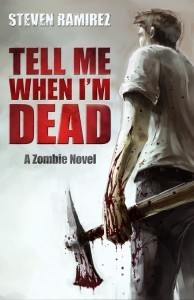 Wow, it’s been a long summer, people. What with editing, final proofing and eBook formatting … but I’m nearly there. My new zombie novel, Tell Me When I’m Dead, is just about ready for publication as an eBook. Whew!
Wow, it’s been a long summer, people. What with editing, final proofing and eBook formatting … but I’m nearly there. My new zombie novel, Tell Me When I’m Dead, is just about ready for publication as an eBook. Whew!
This thing is going up on Amazon exclusively. Over time, I will expand. If all goes well—and that’s really up to you guys—there will be a paperback edition toward the end of the year.
Over the last several months, I’ve gotten so much encouragement from my family, fellow writers and beta readers. Publishing a book is really putting yourself out there. You always hope for the best, but expect the worst. And, good or bad, every honest review is a gift.
So, not too much longer, I promise. In the meantime, here is Chapter 1. Let me know what you think in the comments.
Chapter One
In the Shit
Not all draggers want to eat your flesh. Some want revenge.
This was what went through my head as I lay frozen in the corner of a cold storage area, my body halfway to dead and my breath like a broken concertina. The pounding on the metal door was deafening. The wailing of the undead tore at my brain like a glass dagger. It was a matter of time before they got in. I might be able to take out one or two— even without a weapon—but in the end they’d finish me.
I couldn’t get my mind clear. I thought I heard automatic gunfire and the sound of people screaming. How had the draggers broken in? Wasn’t anyone defending the doors? Maybe my captors were passed-out drunk.
It would’ve been so much better for me had I done the same. I wouldn’t feel anything as I was ripped to pieces by animal-like claws and razor-sharp teeth that reeked of carrion, the filmy grey eyes unseeing and unfeeling.
In my delirium I prayed Holly and Griffin made it to the Arkon building and under the protection of Warnick and his men. There was no way for me to check. My cell phone was busted. I hadn’t slept for days. I was hurt. Bad. Surrounded by huge aluminum tanks of ice-cold beer waiting to be tapped. Nice touch, Lord. Back atcha.
Through the pounding and the screaming I wondered if my friend Jim was outside with the others, trying to claw his way in and shred me up out of hate for what happened to him. It wasn’t my fault he turned. It wasn’t anyone’s fault.
In the days preceding this—I don’t remember when—I saw a horde tear a guy apart. Big as he was, he was no match for them. In a matter of seconds they had him on the ground as they ripped his belly open, exposing the soft, pulsating organs. They cored him like an apple, from bottom to top. His head was the last to die, I remember, his eyes frozen in the terror of seeing his own hollowed-out body shudder into stillness. I wished I had a gun.
But it was the screaming. I’d never heard a man scream like that before. Was I capable of making that sound?
I stared at the door, wondering if it would hold. There was no way to lock it from the inside. Besides, I was too weak. The nailheads had left me in here and were planning to kill me according to the one they called Ulie. It didn’t matter that I’d agreed to join their insane movement. Or the draggers would find me instead. You ’member that guy Dave Pulaski? Whatever happened to him? Oh yeah, he’s dead. Just like all the others.
So far the horde was unable to pull the door open. I needed a beer bad.
I thought of Black Dragon and the Red Militia. Both proved to be false remedies in these delirious times. The soldiers—private military contractors really—were overwhelmed. And the militia, which started out as a movement to “save” people, turned into ravening chaos and violence. They fought Black Dragon, they fought civilians and they fought themselves, all at the behest of their insane leader, Ormand Ferry, with his dream of a new order, which was disintegrating into a long, debauched night of madness here in this out-of-the-way brewery.
I didn’t know which was worse—the draggers or Ormand Ferry. Either way you were dead.
###
It was so cold in here as I sat there thinking about these last weeks—about Holly, Jim and Missy. Everything went wrong after that night—that lost night. And what about me? I was a good person—I am. Used to be … I don’t know. But it was after that monstrous night when everything went sideways and Hell came looking for the good people of Tres Marias.
 Send to KindleLink to this post!
Send to KindleLink to this post!
August 15, 2013
Coming Soon—The Underlighters
 Send to Kindle
Send to KindleThe Underlighters
Nightmares are bleeding into her waking world. Children are going missing. To save them, she must overcome her wreck of a personal life and a closet full of skeletons. She doesn’t know if the horrors in the shadows are real…or if she is going mad.
18-year-old Janelle Cohen is an electrician in an underground city. The world above has been swallowed by mind-destroying Dust. Her small life changes forever when a dragon attacks her on the way home from work.
Her friends worry that she has the Fever, Dust-induced insanity. As more monsters strike down citizens, they change their minds. A terrifying trip to the surface of the world, the ancient and abandoned Up, deepens the nightmare. With no world left above, she and the other Crows cannot afford to fail…
5 stars: “…You will be rewarded with a dive into the depths of imagination that may leave you questioning, breathless and inspired.” –www.TracingTheStars.com
5 stars: “… Engaging, ground breaking prose that is not afraid to test the reader’s boundaries.”—Sara Celi
5 stars: “…A wonderful read that is full of life, nightmares, fear, and dreams.” –Casey Peeler
http://www.rafflecopter.com/rafl/share-code/ZGFiNzllYWFkY2YyMWQ1ZDY3NjhmOTFmZWU0NjFmOjI=/
Janelle’s world is about to get very, very dark. Are you ready? On August 30th, nightmares are going to become a little too real for comfort.
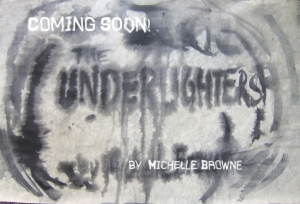 Art by Bonnie Patton, © 2013. used with permission of the artist. http://bpwordeater.com/
Art by Bonnie Patton, © 2013. used with permission of the artist. http://bpwordeater.com/
Thanks for dropping by the nest once again. Don’t miss any of the phuquerie. Find Michelle on Twitter, Facebook, and on Tumblr. More interviews and witty commentaries are coming. Keep checking back to see those surprise posts, too. This is your darling SciFiMagpie, over and out!
 Send to KindleLink to this post!
Send to KindleLink to this post!
August 8, 2013
Oh the Joy of Editing Your Novel
 Send to Kindle
Send to KindlePhoto Courtesy of Turinboy via Creative Commons Today, I thought I’d give you an update on my new zombie novel, Tell Me When I’m Dead. A few days ago, I got the manuscript back from the editor. Though there were lots of changes, corrections and comments, it actually wasn’t as bad as I thought it would be.
Today, I thought I’d give you an update on my new zombie novel, Tell Me When I’m Dead. A few days ago, I got the manuscript back from the editor. Though there were lots of changes, corrections and comments, it actually wasn’t as bad as I thought it would be.
Editing is not a process that writers love—unless they’re masochists. Come to think of it, the fact that we write at all and expect people to read our work classifies us as masochists. Never mind.
During this stage of the novel-writing process, I decided to take an almost Zen-like approach to the process. That alone kept my blood pressure down and actually gave me a real appreciation of the editor’s contribution to a novel.
So here are a few observations. My hope is that other writers will feel differently about the editing process after this, and even come to like it. I’m still struggling with that last part, but I’m getting better.
Let the Grammar Happen
One of the most important things an editor does is correct bad grammar according to the references they use. Probably the most familiar is The Chicago Manual of Style. It’s a classic, and well worth the forty bucks.
Here’s the thing: no matter how much you edit your own work, there’s still a ton of stuff the editor will find. You might as well embrace it. And that’s not to say that you should turn in a hot mess. Do the very best you can, but be aware that grammar happens.
Admittedly, I have a quirky way of writing. I think it comes from all that grape Kool-Aid I drank as a kid. And one of the ways this quirk expresses itself is in the way I write the possessive form of a name. For instance, I always write the possessive of my character Travis as Travis’. My editor dutifully changed it to the correct Travis’s. What it is about that extra S, I couldn’t tell you, but it pisses me off. Nevertheless, I accepted the change with grace and dignity. Then I broke a few pencils.
I draw the line at serial commas, though—yay me! When I sent over the manuscript, I asked the editor to ignore the fact that I never use them. He informed me that, although it’s common to use them, not using them is fine too. Here’s an example:
I’d get a good start, but there was so much pain in my neck, back and legs.
Now, If I were a serial comma guy, that sentence would have read:
I’d get a good start, but there was so much pain in my neck, back, and legs.
Okay, I know commas don’t cost anything, but I just don’t see the need to add that last one. Moving on.
I told you I was quirky. I have this habit of capitalizing certain words depending on their context. One of those words is Undead. So what did my editor say? Well, he found other names for people or things that weren’t capitalized, and asked why I didn’t capitalize them as well. Guess what. I couldn’t defend myself. So I changed all the occurrences to lowercase.
Leave Your Ego at the Door
I’ve observed that a lot of editing is about ego. Why? Well, because someone is tampering with your creation. You need to get past that when going through this process because (a) the editor is there to help you and (b) the work will come out much better if only you’ll listen.
In going through the nearly ninety thousand words, I found that after I had accepted most of the changes, the sentences did read better. And isn’t that the goal?
Don’t Lose Your Voice
One thing, though. At the beginning I said that the editor will go through your book and attempt to apply correct grammar—without exception. In my case, that occasionally conflicted with the narrator’s voice. I’ll give you an example.
Dave Pulaski, an average guy in his early twenties, is the narrator of my book. Though he’s certainly literate, he doesn’t always express himself according to Elements of Style. Here’s a line from the book:
For a second I caught myself thinking this was like one of those horror movies where the audience is screaming “Get out of there now!”
Now, here’s what the editor suggested:
For a second I caught myself thinking this was like one of those horror movies in which the audience is screaming “Get out of there now!”
Dave would never say “in which.” It’s just not Dave. So I ignored the change.
What did I learn from all this? Simply that you must heed your editor’s advice. That’s what you’re paying for. But not at the expense of your voice.
I’ll leave you with one other example. And this particular one shows the give-and-take between writer and editor.
One of my chapters, originally subtitled “Free Falling,” refers to the Tom Petty song. Well, the editor immediately changed it to the correct “Free-Falling.” When I explained that I was referencing the song, he suggested that I go ahead and change it to free fallin’ but use Italics. That way, some wiseacre reader wouldn’t think I failed to use the correct form. There’s a sentence in that chapter that also refers to the song. Here is how it came out:
I was, like the song says, free fallin’.
So three things to leave you with:
1. Trust your editor.
2. Leave your ego at the door.
3. Trust yourself.
Related articles
Don’t sweat it: Serial comma (madamgrammar.com)
What drives an editor crazy? (chipmacgregor.com)
Non Grammar Divas Unite! (part deux) (jessicaaspen.com)

 Send to KindleLink to this post!
Send to KindleLink to this post!
August 1, 2013
Three Lessons from the Screenwriting Trenches
 Send to Kindle
Send to KindlePhoto Courtesy of IMDb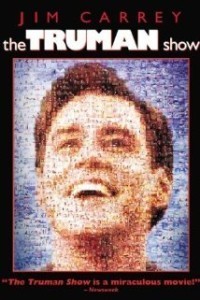 In a previous post I talked about writing my upcoming novel, Tell Me When I’m Dead, to be more like a screenplay in terms of pacing. I laid out the beats I’d like to hit so the reader feels they are watching a movie. This got me thinking about other lessons from screenwriting. I’d like to share just three of those because I think they are applicable.
In a previous post I talked about writing my upcoming novel, Tell Me When I’m Dead, to be more like a screenplay in terms of pacing. I laid out the beats I’d like to hit so the reader feels they are watching a movie. This got me thinking about other lessons from screenwriting. I’d like to share just three of those because I think they are applicable.
1. Keep Backstory to a Minimum
Think about the books you’ve read over the years where you find yourself wading through tons of backstory before you can actually get to “the good part”—the part where something actually happens. I’ve read lots of books in the Kindle Store, and have often found this to be the case. It’s almost as if the author is trying to show me just how much research went into the characters by telling me where they went to middle school, how they got that scar on their cheek and what their childhood imaginary friend’s favorite dessert is.
If you did this in a movie, the audience would walk out. No one has time for that! We want to know:
1. Who we are following.
2. What problem they are trying to solve.
3. What is stopping them from solving it.
If you need to tell the reader important metadata about the character or the setting or the time period, then weave it into the story. Don’t dump it on our plate in one big steaming pile.
Here’s a test. If your book were a relationship and the chapters meetings all the way from the first date to you and the reader getting married at the end, would you tell them everything about you on the first date? Or would you hold back and create a little mystery?
Okay, time’s up. Please put down your pencils.
2. Ask a Question, Then Answer It
This is Screenwriting 101, people. You don’t need to do this on page one, but it should happen pretty close to the beginning to create a hook that will keep the reader interested.
Here are some examples to get you started.
Will Sarah ever get together with the man of her dreams who lives next door?
Will Harry find his wife’s killer before the poison coursing through his veins kills him?
Will Mike and his friends make it out of the haunted house alive?
And now a few real examples. These questions were not officially blessed by the screenwriters, but they were the ones I was asking.
‘The Truman Show’ (1998). Will Truman overcome his fears and escape from Seahaven?
‘Apollo 13’ (1995). Will the astronauts make it back to earth alive?
‘The Godfather’ (1972). Will Michael marry Kay and become an honest lawyer, or take over the family business?
‘Inception’ (2010). Will Cobb ever see his children again?
Here’s the key, though. If you ask the question, you must answer it by the end of the book. Leaving your reader with a vague ending makes people mad—makes them feel like they wasted their time.
You Need a Midpoint
In movies, the midpoint divides the movie into two halves. In the first half, your protagonist is one person on one journey. In the second half they are someone else with a new mission.
A classic example is Ellen Ripley in ‘Alien’ (1979). In the first half, she is not in charge and is trying to work with the rest of the crew to complete her mission. At the midpoint all hell breaks loose, and now Ripley must try to save what’s left of her crew and kill the alien. Not what she signed up for.
And it doesn’t matter what genre you write in. This works for any kind of story. How about ‘Jerry Maguire’ (1996)? In the first half, Jerry is a successful sports agent with a beautiful fiancée, courting a star athlete. At the midpoint he loses out to another agent, dumps the girl and goes out on his own with nothing but a fish and a quirky single mom office worker. Now his new mission is to reinvent himself according to his manifesto and, despite himself, find true love.
There are so many more lessons, but I’ll leave you to ponder these now. Let me know your thoughts in the comments.
Related articles
Must Read Screenwriting Books (cinearchivist.wordpress.com)
Screenplay vs. Novel (ccyager.wordpress.com)
‘The Truman Show’ Was Prophetic (motherboard.vice.com)

 Send to KindleLink to this post!
Send to KindleLink to this post!
July 25, 2013
Five Things to Improve Your Brand
 Send to Kindle
Send to KindlePhoto Courtesy of Billy Nata via Creative Commons Over the past couple of years I’ve spent a lot of time on Twitter and Facebook. As a writer, my original intent was to build a platform by marketing myself and my work. I’ve tried a number of different approaches based on what I’ve read on hundreds of blogs and books on social media.
Over the past couple of years I’ve spent a lot of time on Twitter and Facebook. As a writer, my original intent was to build a platform by marketing myself and my work. I’ve tried a number of different approaches based on what I’ve read on hundreds of blogs and books on social media.
Like many engaged in social media, I’ve made lots of mistakes and sometimes—rarely, thank goodness—I’ve alienated followers. Some of you are just starting out, so I’d like to share a few things I’ve learned over the last two years. Don’t worry, this won’t take long. What I’m proposing is pretty simple.
1. It’s Not About You
Surprising? Many people—not just writers—get into social media with the idea that the world is just waiting to hear what they have to say about themselves. Once they’ve set up their Twitter accounts and Facebook fan pages, they proceed to bombard the world with come-ons to buy whatever it is they are selling.
Well, guess what. It’s not about you—it’s about your audience. Assuming you have already targeted your audience, what is it they really want to hear about? If you follow Patton Oswalt, you’ll notice that he rarely talks about himself. But he’s happy to share his opinions on any number of other topics, and we love him for it. That’s why we follow him. Oh, and did I mention he has over a million followers?
2. Helping, Not Promoting
Admittedly, we can’t all be as brilliant as Patton Oswalt. You’re supposed to be building your own brand anyway, not copying someone else’s. So what should you tweet? Just remember to be helpful. Remember who your audience is and give them what they want—interesting information that will make their lives better.
What I’m really talking about here is curation. Want to know who rocks at curation? Guy Kawasaki. Again, over a million followers.
So what is curation? Here is a definition that works for me: Social curation is collaborative sharing of Web content organized around one or more particular themes or topics (from “Social Curation”). Essentially, you find the things that you—and your audience—care about, and you share them. Whenever possible, you should also offer an opinion.
I care a lot about movies and television. Apparently, so does my audience. Here is an example of what I am talking about:
Save the Movie! http://slate.me/15zkHnD via @slate A structure—not a formula. #Screenwriting
In this tweet, I summarized what I felt was the main thrust of the article—namely, that some critics blame bad movies on a book whose intent is to explain screenplay structure and not promote a magic formula for success. I could go on about this for hours but I’ll leave it at this. Good dramatic structure has been around since at least Poetics. All studio movies follow the same structure. It’s just that some are badly written. You shouldn’t blame that on a book.
So by now you’re asking yourself, “So when should I promote my work?” It’s a great question. Of course, it’s important to leverage Twitter and Facebook to gain new followers who might just buy your work. But first you have to build trust. And how do you do that? By adding value.
I used to promote my writing every day—especially on Twitter. I bombarded the Internet with cute little 140-character slogans that told people they needed to buy, buy, buy! Well, I did have some success but to be honest, it was tiring. I was frankly getting sick of listening to myself. So I changed tactics.
Now I spend a lot of bandwidth curating. Every so often, I throw in a blurb about one of my short stories—maybe a quote from a five-star review. But mostly I curate.
So sales have shot through the roof, right? Not really. Keep in mind, though, that I haven’t published a novel yet. That’s coming soon. And traditionally short stories don’t sell as well as books—at least that’s what I’ve read. Nevertheless, I’m sticking to the plan. I feel better too.
3. Don’t Thank Someone with “Thank You”
This is pretty minor but a thorn in my side. Just because someone retweets something of yours doesn’t mean you have to clutter the Twitter stream with half-hearted thank-yous. You want to thank me? How about retweeting something of mine? That’s the best form of gratitude.
4. Don’t Whine
It was true in Aristotle’s time and it’s true now—nobody likes a whiner. I’ve run across this weak phenomenon more on Facebook than Twitter. Authors who complain about the bad things that happen to them. “I got a bad review today. Waaaaaah.” Or “I can’t write today, I’m tired! Waaaaaah.” Here are a few more:
I drank too much coffee
I didn’t drink enough coffee
I can’t get this song out of my head
I went out with friends and they put me in a bad mood
I don’t have any friends and that puts me in a bad mood
I look fat in these sweat pants (oh, sorry, that one’s mine)
Which leads me to my final point.
5. Shut Up and Work
You can’t get more basic than this. If I had to leave you with a single piece of advice that will serve you well for the rest of your life, it’s this. There is no substitute for hard work. Embrace it.
Related articles
10 Effective Aspects of a Social Media Marketing Campaign (socialmetricspro.com)
How to Find Great Content to Share on Twitter (socialmediaexaminer.com)
How Content Curation Attracts Audience & Powers SEO (prnewswire.com)

 Send to KindleLink to this post!
Send to KindleLink to this post!
July 18, 2013
Becoming a Professional Writer
 Send to Kindle
Send to KindleBy Sarah Clarke
Photo Courtesy of Robert Ely via Creative Commons Sometimes we fall into writing on our way to something else. In this guest post, Sarah Clarke of How2become discusses paths to a professional writing career based on her own experience.
Sometimes we fall into writing on our way to something else. In this guest post, Sarah Clarke of How2become discusses paths to a professional writing career based on her own experience.
We all have talents and passions, and for some us that falls to writing. Actually, most jobs now require a lot of writing but just don’t allow creativity to come into play.
Most writers didn’t succeed as a professional writer overnight, so there are ways to gradually make it into the writing field. More and more professional writers actually have a different full-time career, which is not writing, and then they write as time allows. Others have retired from a successful career and feel now they have time to get out the pen and pad or the computer and start typing away.
I remember back in my college days when I had my heart set on being a professional writer. The day reality sets in was when I was sitting in a writing course which was led by a most inspirational professor. Our assignment had been to go through the latest edition of Writers Market and submit a piece of work matching their writer’s guidelines and needs for material and wait for a response.
About a month had passed, so students were beginning to get responses. Most responses were, “We’re sorry but at this time…” However, these letters were very beneficial to everyone in the class. Many of the rejections included constructive criticism, which would be beneficial to everyone in the classroom as they pursued future writing assignments, whether they were in class or on a professional level.
During this process of receiving letters, the professor looked at the class and said, “I know many of you in this classroom plan on being a professional writer one day, but it doesn’t happen that way.” The professor went into further details saying not everyone who had a degree in English literature could be a professional writer and getting the name recognition and respect required to succeed in the writing world did not happen overnight.
During her college days, she too, had been determined to be a professional writer, which actually, she was at this point in her life. However, she pointed out that her regular job, or “bread and butter” so to speak, was a full-time college professor. Yes, she had been published in The Smithsonian and other highly reputable publications, but those were her part-time duties, which were completed in the evenings, on weekends, and during the summer months.
Throughout the years, I have developed a long list of friends and professional acquaintances who could be considered professional writers, but who either have other full-time jobs or who have retired from other careers. As an example, I know someone who was a tax attorney and now he has retired, he does financial and political writing.
I know a certified public accountant who is also a widely published financial journalist. There are bankers who write mortgage articles, teachers who write education columns, and lawyers who write columns about new laws being enacted. I know an antique shop owner who writes a syndicated collecting column. Magazines, newspapers, and newsletters need various articles and columns, so the odds are in your favor. Getting published wherever possible and as often as possible helps build a strong portfolio, so you can work toward higher goals.
It does take time to get established as a writer, just as the old saying about the “starving artist” implies. As I said earlier, my college goal was to become a professional writer. Right after I graduated with my degree in English and journalism, I started out in the highly competitive retail sales world followed by a position in marketing and public relations at a music theater. I then made my way into a position at a daily newspaper, a job where I stayed the following nine years.
I learned working at a small town daily newspaper was very rewarding work, but the salary was not sufficient. A career in education offered a better salary and better benefits, and I still had the time to pursue my writing passion in the evenings, on weekends, and during the summer. I then taught language arts and reading in the public school system.
Finally, I got to the place I had wanted to be for years — I had built up a strong portfolio and could pursue a full-time career as a freelance writer. If you dream of being a professional writer, don’t give up. It just requires a lot of patience, a lot of dedication, and a lot of experience.
My Top Tips
Many people have the desire to be a professional writer, but they know not everyone can pursue a professional writing career. Some people enjoy writing, but have no desire to write full-time and believe it would be a great help to add cash flow to their bank accounts during financial difficulties.
A professional writing career, however, can grow and develop from juggling part-time writing with a different full-time career. Some people put writing on hold, or don’t even consider a career as a writer until retirement draws near.
Most people who are professional writers are taking on the assignments as freelancers, or independent contractors, so they must have the ability to run their own business, so to speak.
Here are some tips for those wanting to pursue a professional writing career, whether on a full-time or part-time basis:
If you want to become a professional writer, don’t give up. Set a long term goal and focus on it.
Build a portfolio. Write for various publications and write as much as possible. Keep an up-to-date portfolio that shows your experience and capabilities.
If you are serious about writing, take the time to look for writing jobs. Whether you want to pursue a full-time writing career or just get part-time writing gigs or freelance opportunities, stay updated and apply or make a bid for any jobs you may be interested in pursuing.
Keep informed. If you want to write about a particular topic, then you should keep informed about the subject and any changes or current trends.
When doing freelance work, protect yourself with documentation or a contract to ensure timely payment.
As a freelance writer, you are an independent employee and taxes are not withheld. Keep enough money back to pay the Internal Revenue Service when you file your taxes.
Keep receipts. As being a self-employed writer, you can deduct expenses. If you have to purchase a computer or travel, keep track of all costs so they can be properly written off at tax time.
Don’t sell yourself short. I see freelancers willing to offer services for $2 or $3 per hour. You want to make money, so if a client doesn’t accept your bid, don’t fret. Many clients are willing to pay more for high quality work.
Never take on more work than you can handle at a time. You still need adequate rest and family time, so don’t take on too many jobs, which will stress you out and reduce your job performance. Most clients consider meeting deadlines a priority. If you have too much work to do, then you may not get it done on time.
Learn how to network. If you write a few great articles for a publication, the editor you work with may be able to recommend you to someone else, or provide a reference that will help you get additional writing jobs.
Be attentive and accept constructive criticism. Sometimes it is easy to take comments personally, but those comments are actually designed for your benefit so you can know what changes you need to make on future assignments.
Keep learning. Take an occasional course or attend seminars, read books and writing magazines, and go online to find additional writing tips. There are always things to learn about improving writing skills.
Sarah Clarke has a degree in English and journalism and is currently a writer for How2become.com. She has always loved tennis and also maintains a passion for horror films. You can connect with How2become on Twitter or Google+ here.
Related articles
Making Money Online As a Freelance Writer: Helpful Tips for Beginners (realwritingservices.com)
The freelance life, redux (cjr.org)
10 Key Points Freelance Content Writers Must Embrace Now to Compete in the Future (freelancefolder.com)

 Send to KindleLink to this post!
Send to KindleLink to this post!
Glass Highway
- Steven Ramirez's profile
- 176 followers


